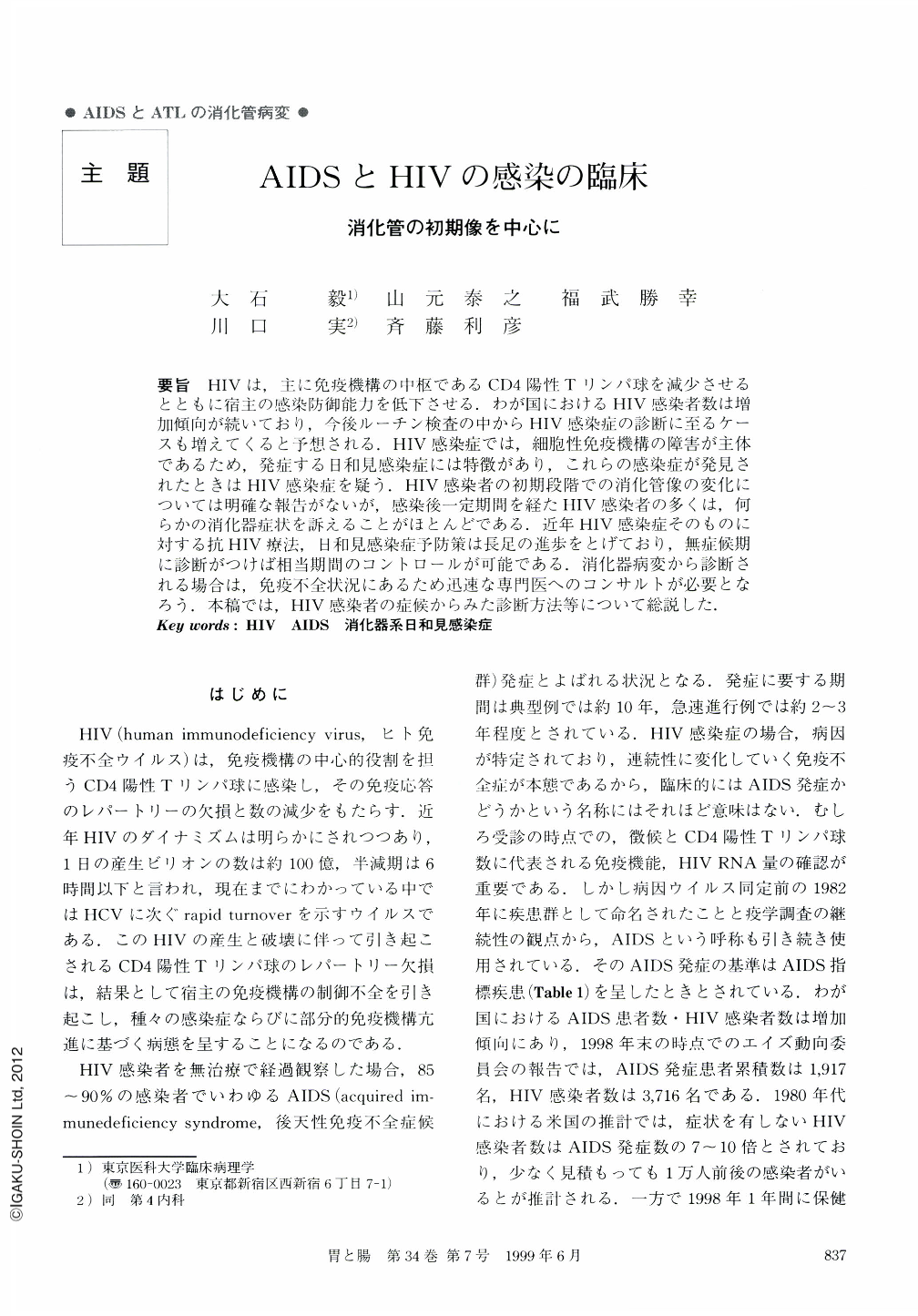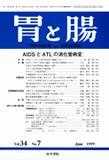Japanese
English
- 有料閲覧
- Abstract 文献概要
- 1ページ目 Look Inside
- サイト内被引用 Cited by
要旨 HIVは,主に免疫機構の中枢であるCD4陽性Tリンパ球を減少させるとともに宿主の感染防御能力を低下させる.わが国におけるHIV感染者数は増加傾向が続いており,今後ルーチン検査の中からHIV感染症の診断に至るケースも増えてくると予想される.HIV感染症では,細胞性免疫機構の障害が主体であるため,発症する日和見感染症には特徴があり,これらの感染症が発見されたときはHIV感染症を疑う.HIV感染者の初期段階での消化管像の変化については明確な報告がないが,感染後一定期間を経たHIV感染者の多くは,何らかの消化器症状を訴えることがほとんどである.近年HIV感染症そのものに対する抗HIV療法,日和見感染症予防策は長足の進歩をとげており,無症候期に診断がつけば相当期間のコントロールが可能である.消化器病変から診断される場合は,免疫不全状況にあるため迅速な専門医へのコンサルトが必要となろう.本稿では,HIV感染者の症候からみた診断方法等について総説した.
HIV mainly decreases the number of CD4 lymph cytes that act as a center of immunologic defense mechanism, and reduces defense ability of the host to infection. The number of the HIV infected people are still rising, we suspect that regular blood test may incidentally detect HIV infection more often. HIV mainly disturbs cyto-immunologic defense mechanism ; therefore HIV disease has characteristic opportunistic infection. On the contrary, these opportunistic infections suggest HIV disease. Alimentary tract involvement of early stage of HIV disease has not been well documented yet, but most of the patients who have a certain period of HIV infection may have some complaints associated with digestive tract. Recent advances of anti-HIV therapy and prevention of opportunistic infection could control their symptoms in a considerable period, if they were found in an early stage of disease. If a patient were diagnosed by the digestive tract lesion, patient would be in immunodeficint condition ; therefore immediate consultation to the specialist may be necessary. This article reviews diagnostic plan from the viewpoint of symptoms of HIV infected patients.

Copyright © 1999, Igaku-Shoin Ltd. All rights reserved.


